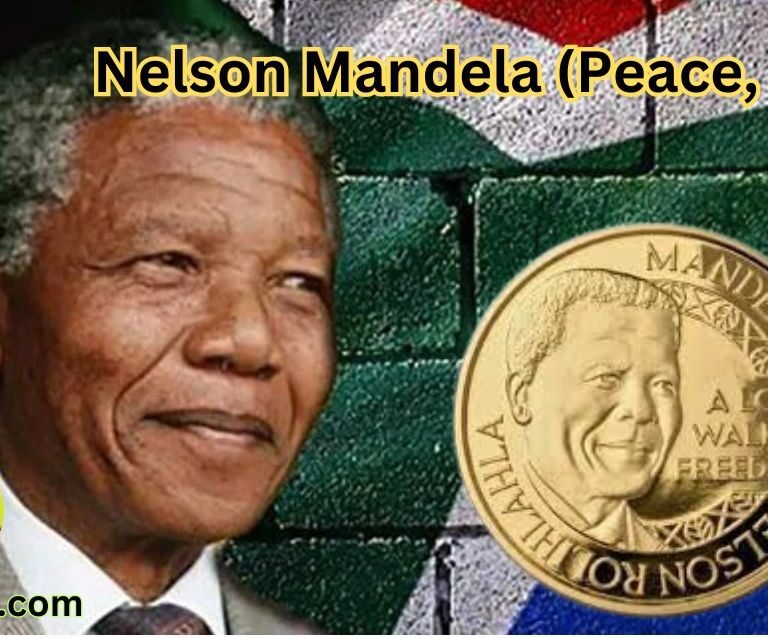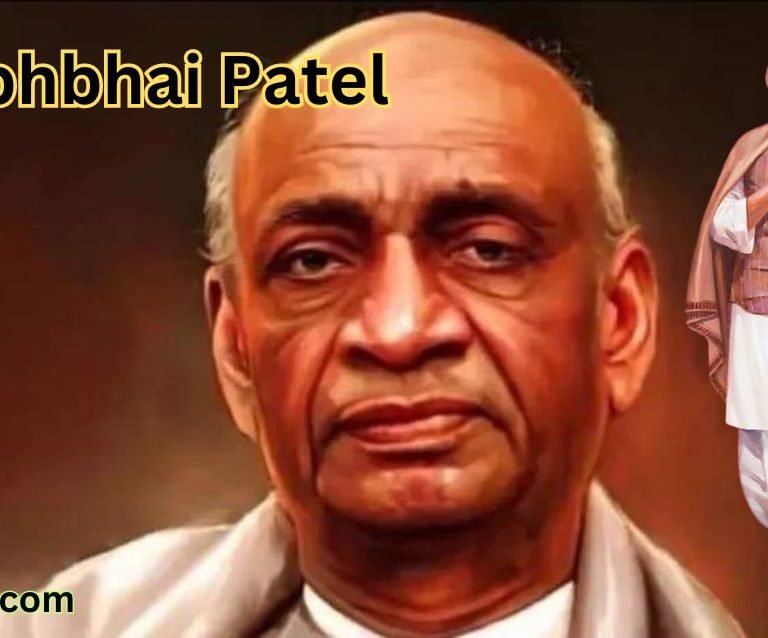Mahatma Gandhi, born Mohandas Karamchand Gandhi on October 2, 1869, in Porbandar, India, is revered as a leader of the Indian independence movement against British rule
Mahatma Gandhi, born Mohandas Karamchand Gandhi on October 2, 1869, in Porbandar, India, is revered as a leader of the Indian independence movement against British rule. His legacy of non-violence and civil disobedience has inspired movements for civil rights and freedom across the world. Gandhi was a pivotal figure in shaping the values of peaceful resistance, which became fundamental to various human rights movements since his time.
Gandhi’s early life in India was characterized by traditional education and Indian cultural influences. He attended school in his hometown before moving to London in 1888 to pursue a degree in law. During his time in England, Gandhi encountered various societal challenges that would significantly shape his worldview, including issues related to race and discrimination. These experiences crystallized his understanding of injustice and inequality, leading him to reflect on the importance of non-violent resistance as a means of effecting change.
After returning to India, Gandhi’s prominence grew through his involvement in the struggle for social reform and political rights for the Indian people. His deep commitment to truth and non-violence, termed “Ahimsa,” became cornerstones of his philosophy. He played a vital role in numerous movements advocating for civil rights, including the Champaran and Kheda Satyagrahas, where he employed non-violent methods to oppose oppressive practices imposed by British authorities.
His life’s work was not only about attaining independence for India but also aimed at promoting the upliftment of the marginalized sections of society. Through his relentless pursuit of justice and peace, Mahatma Gandhi has left an indelible mark on India and the world, making him a symbol of hope and resilience in the face of oppression.
Mahatma Gandhi’s Early Life and Education
Mahatma Gandhi was born on October 2, 1869, in Porbandar, a coastal town in present-day Gujarat, India. He was born into a Hindu merchant caste family, where his father, Karamchand Gandhi, served as the local chief minister, and his mother, Putlibai, was deeply religious and practiced traditional beliefs. This family background played a significant role in shaping Gandhi’s early values and principles. The moral teachings imparted by his mother, particularly the importance of truth and non-violence, profoundly influenced his character and future leadership style.
As a young boy, Gandhi exhibited a shy demeanor, but he was also curious and introspective. His educational journey began at a primary school in Porbandar, later continuing at the High School in Rajkot. His experiences during this period were marked by the struggle to balance traditional Indian values with the influences of British colonial rule. Understanding the significance of education, Gandhi pursued higher studies in law and set sail for London in 1888, becoming one of the first Indians to do so.
While in London, Gandhi encountered a diverse society that challenged his preconceived notions. He grappled with cultural differences and developed a deep interest in various philosophies, including those of Henry David Thoreau and Leo Tolstoy. This exposure further broadened his thinking and enhanced his commitment to justice and equality. After completing his law degree, Gandhi traveled to South Africa in 1893, where he confronted the realities of racial discrimination firsthand. It was in this setting that he formulated his philosophy of Satyagraha, a non-violent approach to resistance that would later define his leadership in India’s struggle for independence. Gandhi’s early life and education laid the foundation for his transformative role in advocating for human rights and social justice, forging a legacy that continues to inspire millions today.
The Philosophy of Non-Violence
Mahatma Gandhi’s philosophy of non-violence, known as Ahimsa, is a cornerstone of his approach to social and political activism. Ahimsa entails not only the absence of violence but also the presence of love, compassion, and respect for all living beings. Gandhi believed that violent means could never produce lasting peace or justice; instead, they would perpetuate a cycle of conflict and suffering. By advocating for non-violence, he sought to create an environment where dialogue and understanding could flourish, encouraging individuals to engage with their oppressors in peaceful yet firm opposition.
Closely associated with Ahimsa is the concept of Satyagraha, or truth-force, which Gandhi developed as a strategy for social change. Satyagraha involves the pursuit of truth through non-violent resistance and civil disobedience. It empowers individuals to confront injustice without resorting to aggression, emphasizing the power of collective moral force. Gandhi famously employed Satyagraha in various movements, including the Salt March, where he led thousands of Indians to protest British salt laws. This not only showcased the effectiveness of non-violent resistance but also galvanized public support and international attention towards India’s struggle for independence.
Gandhi’s philosophy was also influenced by various religious and philosophical traditions, including Hinduism, Jainism, Christianity, and Buddhism. He synthesized these influences into a cohesive worldview that embraced tolerance and understanding. Through his teachings, Gandhi encouraged individuals to adopt non-violence not just as a political strategy but as a way of life. He contended that true power lies in the ability to love one’s enemies and to seek justice through peaceful means. This approach not only shaped India’s independence movement but also left an indelible mark on global civil rights movements, inspiring leaders such as Martin Luther King Jr. and Nelson Mandela to embrace similar tactics in their struggles for justice.
Leadership in the Indian Independence Movement
Mahatma Gandhi emerged as a central figure in the Indian independence movement, harnessing the power of nonviolent resistance to challenge British colonial rule. His approach not only inspired millions but also established a unique framework for mass mobilization and civic engagement. One of the pivotal events in this journey was the Champaran Satyagraha in 1917, where Gandhi led farmers in Bihar to protest against oppressive plantation regulations. This engagement not only highlighted the struggles of the agrarian community but also showcased Gandhi’s ability to unite diverse groups under a common cause.
Following Champaran, the Kheda Satyagraha in 1918 illustrated Gandhi’s commitment to addressing the grievances of the rural population. The farmers in Gujarat were struggling with crop failures and were unable to pay taxes. By encouraging them to withhold tax payments, Gandhi effectively drew attention to their plight, ultimately leading to significant concessions from the British authorities. These early movements laid a foundation for broader participation in India’s quest for independence, fostering a spirit of collective resistance.
The Salt March in 1930 further solidified Gandhi’s status as a leader of the independence movement. By marching over 240 miles to the Arabian Sea to produce salt, he directly challenged the British monopoly on salt production and taxation. This act of civil disobedience galvanized the Indian populace, attracting both national and international attention. The unity displayed during the Salt March was a testament to Gandhi’s ability to inspire ordinary citizens to take part in the struggle for freedom.
Gandhi’s leadership culminated in the Quit India Movement of 1942, which called for the end of British rule in India. This significant event reflected the growing discontent among Indians and the end of British hegemony. Gandhi’s emphasis on nonviolence, truth, and grassroots mobilization revolutionized the fight for independence, ultimately uniting diverse factions of Indian society in the quest for a sovereign nation.
Challenges and Controversies
Mahatma Gandhi’s journey towards achieving Indian independence was fraught with numerous challenges and controversies that shaped his legacy. As he emerged as a pivotal leader in the struggle against British colonial rule, Gandhi faced a persistent opposition not only from the colonial authorities but also from various segments within the Indian populace. The British government’s unwavering stance to maintain control over India meant that Gandhi frequently found himself in the crosshairs of both legal and extrajudicial measures. His acts of civil disobedience, including the Salt March in 1930, led to his repeated imprisonment, showcasing the oppressive nature of colonial rule and highlighting the personal sacrifices he made for the cause of freedom.
Within the Indian community, Gandhi’s ideals often sparked intense debate and division. His commitment to non-violence and civil disobedience sometimes clashed with the more radical approaches favored by other leaders, such as Bhagat Singh and Subhas Chandra Bose. These contrasting philosophies led to accusations of Gandhi being too accommodating to colonial forces, a viewpoint that alienated certain factions within the freedom movement. Additionally, his advocacy for Hindu-Muslim unity was met with skepticism, especially during communal tensions that flared in various parts of India, raising questions about the practicality of his vision of a united India.
Another critical aspect of Gandhi’s life involved his views on caste and social reform. While he worked tirelessly to uplift the marginalized, particularly the “untouchables,” whom he referred to as Harijans, his methods and ideologies were often criticized. Some felt that his approach lacked the urgency required to dismantle the deeply entrenched caste system. These complexities further contributed to the controversies surrounding his persona, leading to debates about the efficacy of his social philosophies. Such challenges and controversies not only defined Gandhi’s tenure as a leader but also established him as a revolutionary figure whose methods continue to evoke admiration and criticism alike.
Post-Independence Struggles
Following India’s hard-fought independence in 1947, Mahatma Gandhi faced immense challenges as the nation grappled with the repercussions of partition. The division of India and Pakistan not only separated communities but also incited widespread communal violence, leading to loss of lives and properties on an unprecedented scale. Despite having achieved his lifelong ambition of a free India, Gandhi’s attention quickly shifted to the growing unrest and the urgent need to foster peace among the divided populations.
Gandhi expressed profound concern regarding the violence that ensued in the wake of partition. He believed that the division was not merely a geographical one but also a moral and spiritual crisis for the country. His commitment to non-violent resistance was now more vital than ever, as he took it upon himself to urge both Hindus and Muslims to coexist harmoniously. Recognizing the potential for lasting conflict, Gandhi embarked on a series of peace missions, striving to quell riots and promote reconciliation. His efforts included fasting as a form of protest against the rioting, demonstrating his dedication to the principles of peace and unity.
During this tumultuous period, Gandhi tirelessly advocated for a united India, embarking on numerous tours to affected areas, speaking to communities, and facilitating dialogues between conflicting factions. He sought to address societal issues such as poverty, discrimination, and the caste system, which exacerbated communal tensions. By emphasizing the importance of empathy, Gandhi aimed to instill a sense of collective responsibility among people. His life’s work continued as he poured his energies into challenging social injustices and fostering greater understanding between diverse groups in India.
Through his unwavering dedication to non-violence and unity, Gandhi endeavored to guide India through its post-independence struggles, hoping to heal the wounds inflicted by partition. His legacy during this period remains a testament to his vision of an inclusive society where people, regardless of their faith, could coexist peacefully.
Assassination and Legacy
The assassination of Mahatma Gandhi on January 30, 1948, marked a tragic turning point in Indian history. On that fateful day, Gandhi was shot by Nathuram Godse, an adherent of a radical faction that believed Gandhi’s approach to Hindu-Muslim unity was detrimental to Hindu interests. Godse’s motivations stemmed from a belief that Gandhi’s non-violent methods and his reconciliation efforts were compromising the rights and safety of Hindus in a newly independent India. This act of violence not only silenced a prominent leader but also stirred widespread outrage and mourning across the nation.
The immediate aftermath of Gandhi’s assassination was characterized by a profound sense of loss and an outpouring of grief throughout India, as millions revered him as the father of the nation. His death revealed a deep polarization within society, highlighting the challenges that lay ahead in maintaining communal harmony. In the years that followed, the impact of his teachings on non-violence and civil disobedience became more pronounced, inspiring movements around the globe for social justice and human rights. Leaders such as Martin Luther King Jr. and Nelson Mandela drew upon Gandhi’s principles to challenge oppressive systems and advocate for civil rights, proving that the philosophy of non-violent resistance transcends geographical and cultural boundaries.
Gandhi’s legacy is emblematic of the enduring power of ethical leadership and the importance of peaceful activism. His emphasis on truth (Satyagraha) and harmonious coexistence remains relevant today as contemporary leaders strive to navigate global crises, social injustices, and conflicts. Thus, the influence of Mahatma Gandhi extends far beyond his lifetime, embodying a model of leadership that continues to inspire countless individuals who seek to bring about change through non-violent means. His life’s work serves as a beacon for those advocating for justice, peace, and understanding in a complex world.
Reflection on Gandhi’s Teachings
Gandhi’s teachings transcend time and continue to hold significant relevance in today’s socio-political landscape. His core principles of non-violence, truth, and social justice offer a viable framework for addressing contemporary global issues. The enduring nature of his ideas compels individuals and societies to consider how they can embody these values in their daily lives, thereby fostering a culture of peace and understanding.
In the realm of social justice, Gandhi advocated for the upliftment of the marginalized and disenfranchised. His belief in equality challenges current societies to confront systemic injustices that persist, such as racism, economic disparity, and discrimination based on gender or class. By drawing inspiration from Gandhi’s approach, individuals can engage in acts of service and advocacy, participating actively in movements that strive for equity and inclusion. This application of Gandhi’s teachings encourages a collective responsibility to seek systemic changes that empower all community members.
Environmental sustainability also resonates profoundly with Gandhi’s philosophy. He understood the intrinsic connection between nature and humanity, emphasizing the need for ecological balance. In an era marked by climate change and environmental degradation, Gandhi’s principles remind us of our shared responsibility to nurture and protect our planet. By adopting sustainable practices and advocating for environmental justice, individuals can reflect Gandhi’s commitment to the Earth, highlighting the interdependence of humanity and nature.
Moreover, Gandhi’s approach to conflict resolution through dialogue and peaceful protest offers a blueprint for handling disagreements in personal and societal contexts. His teachings emphasize the importance of understanding differing viewpoints and advocating for resolutions that do not perpetuate cycles of violence. In applying these principles, individuals can foster environments characterized by mutual respect and collaboration, promoting peaceful coexistence amidst diversity.
Ultimately, the teachings of Mahatma Gandhi serve as a catalyst for introspection and action, encouraging individuals to seek positive changes in their spheres of influence. His timeless wisdom invites each of us to reflect on how we can embody these values, fostering a more just, peaceful, and sustainable world.
Mahatma Gandhi’s life and work represent a remarkable journey of commitment to service, justice, and peace. His philosophy of nonviolent resistance, or Satyagraha, has transcended his physical demise, becoming a powerful tool for change that various movements around the globe continue to employ
Mahatma Gandhi’s life and work represent a remarkable journey of commitment to service, justice, and peace. His philosophy of nonviolent resistance, or Satyagraha, has transcended his physical demise, becoming a powerful tool for change that various movements around the globe continue to employ. From the civil rights movement in the United States to the anti-apartheid struggle in South Africa, the principles espoused by Gandhi have resonated with activists advocating for justice and equality. His teachings not only inspire individual change but also cultivate a collective consciousness aimed at dismantling social injustice.
The significance of Gandhi’s legacy extends beyond political movements; it invites introspection into one’s personal values and societal obligations. His emphasis on truth and moral integrity in the pursuit of justice challenges individuals to engage thoughtfully with their communities and to contribute positively to society. By living a life of service, Gandhi demonstrated that ordinary people can effect extraordinary change through commitment and compassion. Each act of kindness, however small, can ripple through communities and foster a culture of understanding and respect.
This enduring impact highlights the importance of studying Gandhi’s life philosophy and the practical applications of his ideas. By delving deeper into the lessons he imparted, contemporary society can find guidance in navigating the complexities of today’s socio-political landscape. In reflecting on his contributions, we honor not just Gandhi’s memory, but also the ongoing struggle for justice that he fervently championed. Thus, we encourage readers to explore further studies on Gandhi’s impact, enabling a richer understanding of his vision and its relevance in modern times.









